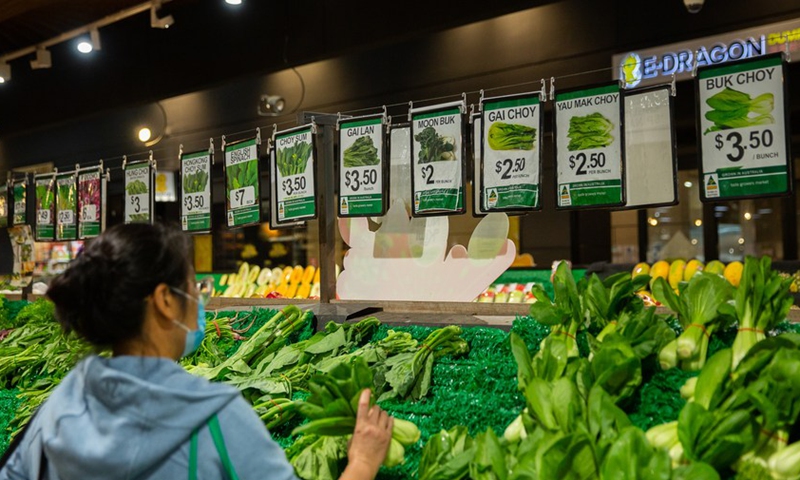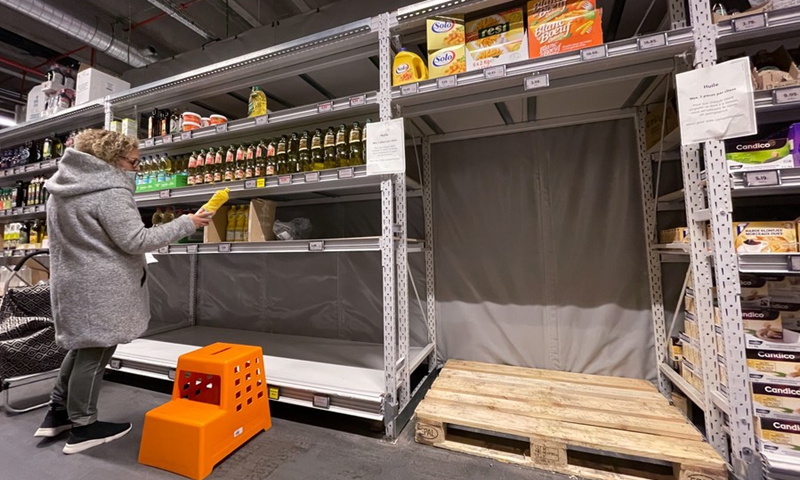
A woman shops at a supermarket in Sydney, Australia, on April 7, 2022.(Photo: Xinhua)

A Palestinian baker uses a traditional wood-fired oven to prepare food during the Islamic holy month of Ramadan in the West Bank city of Nablus, on April 7, 2022.(Photo: Xinhua)

A customer chooses cooking oil at Colruyt supermarket in Brussels, Belgium, March 29, 2022. Due to rise of high energy prices, Belgium markets witnessed the rise of prices of petrol, diesel, cooking oil, flour, etc, in recent times.(Photo: Xinhua)
World food commodity prices made a significant leap in March to reach their highest levels, as the conflict between Russia and Ukraine continues to push up energy costs and cause supply chain slowdowns.
The monthly food prices index, released Friday by the United Nations Food and Agriculture Organization (FAO), rose 12.6 percent to reach 159.3 points in March, compared to a baseline of 100 points for the average in 2014-2016 (adjusted for inflation.)
This is by far the highest total in the history of the index, which was launched in its current form in 1990.
All of the five sub-categories in the index rose, with prices for grains and cereals -- the largest component in the index -- climbing a stunning 17.1 percent. The FAO said the main factor behind this rise is that Russia and Ukraine are both major producers of wheat and coarse grains, and prices for these have soared due to the conflict. Concerns over crop conditions in the United States were also a factor, FAO said. Rice prices, meanwhile, were mostly unchanged compared to February.
Meanwhile, prices for vegetable oils climbed 23.2 percent due to rising transportation costs and reduced exports, again due to the Russia-Ukraine conflict.
The other sub-indexes were all higher, but rose less dramatically. Dairy prices were 2.6 percent higher, meat prices climbed 4.8 percent, and sugar prices by 6.7 percent. The conflict and related issues were also factors behind these price rises, said the FAO.
The FAO's Food Price Index is based on worldwide prices for 23 food commodity categories, covering prices for 73 different products compared to a baseline year.
